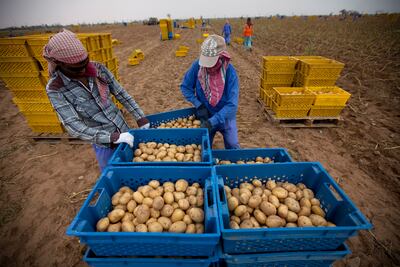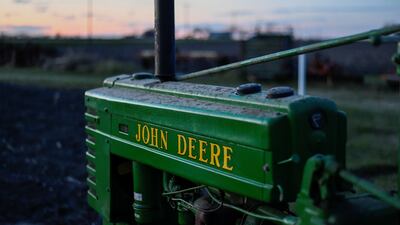The Food and Agriculture Organisation of the United Nations (FAO) has entered a new era with a new structure and new dynamics. The 2030 Agenda and its Sustainable Development Goals (SDGs) are approaching. We have to change our agri-food systems urgently and holistically. This transformation requires a systemic approach and our collective action – “hand in hand” – by producers, distributors and consumers, together with governments, private sector, academia and civil society.
That is what the upcoming UN Food Systems Summit is about, and what the FAO wants to achieve, together with all our partners, through the new FAO Strategic Framework 2022-2031. The action of each and every one of us has an impact on the future of our planet through our agri-food systems.
The summit is timely. After decades of decline, the number of hungry people has been growing for the past five years, now amounting to as many as 811 million people. At the same time, obesity and other non-communicable diseases are ever-growing global problems associated with insufficiently diversified diets and consumption patterns. Many of the current agri-food practices are also exacting a heavy toll on our planet. Our agri-food systems are not functioning properly. What do we need to do to transform them? How does every individual impact the process?
As the leading international organisation in this field, the FAO has been advocating for and supporting agri-food systems transformation. The “agri-food system” covers the journey of food from tillage to table – from when it is planted, grown, harvested, processed, packaged, transported, distributed, traded, bought, prepared, eaten and disposed of. It encompasses non-food products such as forestry, animal rearing, use of feedstock, biomass to produce biofuels and fibres. It constitutes all of the activities, investments and choices made, and it impacts the livelihoods of all the people who play a part in getting us these agri-food products.
With expertise ranging from policy and feasibility, science innovation, land and water, livestock and fisheries, to biodiversity and climate, food safety and normative work, geospatial data and digital technology, the FAO has been at the forefront supporting the preparation for this important global summit. More importantly, in line with its mandate, the FAO will be taking the lead to implement follow-up actions after the summit’s conclusion.
In July, the UN Food Systems Pre-Summit was held with extraordinary success at the FAO headquarters in Rome. Together with the FAO’s Chief Economist and Chief Scientist, I have been sitting on the summit’s advisory bodies, scientific groups and action tracks. We have been working closely with expert colleagues both inside and outside the UN system. With presence in more than 130 countries, our teams on the ground have been supporting “national dialogues” that contribute to the summit’s outcomes and national priorities, ensuring they are targeted and solution-oriented.
Transforming our global agri-food systems rests ultimately with actions at the country and local levels. Culture is an important aspect. One needs only to look at cuisines to see how diverse agri-food systems are across and within countries. More than half of us – around 4.5 billion people – earn our livelihoods directly through the agri-food production chain, supply chain and value chain. We are all consumers of foods, and game changers.
We are all consumers of foods, and game changers
What does it take to transform? We at the FAO have identified four cross-cutting accelerators: technology, innovation, data and what we call “complements” (governance, human capital, and institutions). The FAO has been organising and better preparing itself for the past two years to lead the process. Our new Strategic Framework, endorsed by the organisation’s members, is focused on supporting the achievement of the SDGs through the transformation to more efficient, inclusive, resilient and sustainable agri-food systems for the “Four Betters”: better production, better nutrition, a better environment and a better life.
We have reformed our organisational structure and made it more modular and agile in order to make ourselves fit for purpose. For example, the newly created position of Chief Scientist, along with an Office of Innovation and the Office of SDGs, is a concrete step to strengthen the role of science and innovation to complement the socio-economic work led by the Chief Economist to underpin the transformation, as well as to track the achievement of the SDGs. Innovation is not just about technology. It is also about approaches and policies. It is about mind-set.
Countries, communities and industries will determine their transformational pathways. Our goal is pragmatic: build up ownership of the FAO’s members and support them by walking the talk and achieving concrete results on the ground.
The FAO has the expertise and networks, and a vast array of tools to assist. Our Hand-in-Hand Initiative has established open-access geospatial platforms that can calculate forest cover, carbon sequestration potential and water evaporation rates. Our early-warning network systems can alert of coming droughts or crop pests. Our applications calculate fodder supply and demand conditions in drought- or conflict-prone areas. Furthermore, our analytical work, including our new modelling work, recently assessed impacts and trade-offs of proposed actions and systems which often have detrimental social, economic and environmental effects, as well as determining how to better harness fiscal supports for agri-food systems.
The FAO is well placed and ready to take full responsibility after the summit’s outcomes are decided, and move forward to catalyse impacts together with all stakeholders and friends.
Agri-food systems are complex and diverse. We all agree that they are not realising their full potential if we run business as usual. We need to craft solutions to achieve the Four Betters and leave no one behind. The FAO has the capacity to lead this process with partners for a better world.
The five pillars of Islam
1. Fasting
2. Prayer
3. Hajj
4. Shahada
5. Zakat
Anghami
Started: December 2011
Co-founders: Elie Habib, Eddy Maroun
Based: Beirut and Dubai
Sector: Entertainment
Size: 85 employees
Stage: Series C
Investors: MEVP, du, Mobily, MBC, Samena Capital
Company Profile
Company name: OneOrder
Started: October 2021
Founders: Tamer Amer and Karim Maurice
Based: Cairo, Egypt
Industry: technology, logistics
Investors: A15 and self-funded
Know your camel milk:
Flavour: Similar to goat’s milk, although less pungent. Vaguely sweet with a subtle, salty aftertaste.
Texture: Smooth and creamy, with a slightly thinner consistency than cow’s milk.
Use it: In your morning coffee, to add flavour to homemade ice cream and milk-heavy desserts, smoothies, spiced camel-milk hot chocolate.
Goes well with: chocolate and caramel, saffron, cardamom and cloves. Also works well with honey and dates.
SPEC%20SHEET%3A%20NOTHING%20PHONE%20(2a)
%3Cp%3E%3Cstrong%3EDisplay%3A%3C%2Fstrong%3E%206.7%E2%80%9D%20flexible%20Amoled%2C%202412%20x%201080%2C%20394ppi%2C%20120Hz%2C%20Corning%20Gorilla%20Glass%205%3C%2Fp%3E%0A%3Cp%3E%3Cstrong%3EProcessor%3A%3C%2Fstrong%3E%20MediaTek%20Dimensity%207200%20Pro%2C%204nm%2C%20octa-core%3C%2Fp%3E%0A%3Cp%3E%3Cstrong%3EMemory%3A%3C%2Fstrong%3E%208%2F12GB%3C%2Fp%3E%0A%3Cp%3E%3Cstrong%3ECapacity%3A%3C%2Fstrong%3E%20128%2F256GB%3C%2Fp%3E%0A%3Cp%3E%3Cstrong%3EPlatform%3A%3C%2Fstrong%3E%20Android%2014%2C%20Nothing%20OS%202.5%3C%2Fp%3E%0A%3Cp%3E%3Cstrong%3EMain%20camera%3A%3C%2Fstrong%3E%20Dual%2050MP%20main%2C%20f%2F1.88%20%2B%2050MP%20ultra-wide%2C%20f%2F2.2%3B%20OIS%2C%20EIS%2C%20auto-focus%2C%20ultra%20XDR%2C%20night%20mode%3C%2Fp%3E%0A%3Cp%3E%3Cstrong%3EMain%20camera%20video%3A%3C%2Fstrong%3E%204K%20%40%2030fps%2C%20full-HD%20%40%2060fps%3B%20slo-mo%20full-HD%20at%20120fps%3C%2Fp%3E%0A%3Cp%3E%3Cstrong%3EFront%20camera%3A%3C%2Fstrong%3E%2032MP%20wide%2C%20f%2F2.2%3C%2Fp%3E%0A%3Cp%3E%3Cstrong%3EBattery%3A%3C%2Fstrong%3E%205000mAh%3B%2050%25%20in%2030%20mins%20w%2F%2045w%20charger%3C%2Fp%3E%0A%3Cp%3E%3Cstrong%3EConnectivity%3A%3C%2Fstrong%3E%20Wi-Fi%2C%20Bluetooth%205.3%2C%20NFC%20(Google%20Pay)%3C%2Fp%3E%0A%3Cp%3E%3Cstrong%3EBiometrics%3A%3C%2Fstrong%3E%20Fingerprint%2C%20face%20unlock%3C%2Fp%3E%0A%3Cp%3E%3Cstrong%3EI%2FO%3A%3C%2Fstrong%3E%20USB-C%3C%2Fp%3E%0A%3Cp%3E%3Cstrong%3EDurability%3A%3C%2Fstrong%3E%20IP54%2C%20limited%20protection%20from%20water%2Fdust%3C%2Fp%3E%0A%3Cp%3E%3Cstrong%3ECards%3A%3C%2Fstrong%3E%20Dual-nano%20SIM%3C%2Fp%3E%0A%3Cp%3E%3Cstrong%3EColours%3A%3C%2Fstrong%3E%20Black%2C%20milk%2C%20white%3C%2Fp%3E%0A%3Cp%3E%3Cstrong%3EIn%20the%20box%3A%3C%2Fstrong%3E%20Nothing%20Phone%20(2a)%2C%20USB-C-to-USB-C%20cable%2C%20pre-applied%20screen%20protector%2C%20SIM%20tray%20ejector%20tool%3C%2Fp%3E%0A%3Cp%3E%3Cstrong%3EPrice%20(UAE)%3A%3C%2Fstrong%3E%20Dh1%2C199%20(8GB%2F128GB)%20%2F%20Dh1%2C399%20(12GB%2F256GB)%3C%2Fp%3E%0A
COMPANY%20PROFILE
%3Cp%3E%3Cstrong%3ECompany%20name%3A%3C%2Fstrong%3E%20Bedu%3C%2Fp%3E%0A%3Cp%3E%3Cstrong%3EStarted%3A%3C%2Fstrong%3E%202021%3C%2Fp%3E%0A%3Cp%3E%3Cstrong%3EFounders%3A%3C%2Fstrong%3E%20Khaled%20Al%20Huraimel%2C%20Matti%20Zinder%2C%20Amin%20Al%20Zarouni%3C%2Fp%3E%0A%3Cp%3E%3Cstrong%3EBased%3A%3C%2Fstrong%3E%20Dubai%2C%20UAE%3C%2Fp%3E%0A%3Cp%3E%3Cstrong%3EIndustry%3A%3C%2Fstrong%3E%20AI%2C%20metaverse%2C%20Web3%20and%20blockchain%3C%2Fp%3E%0A%3Cp%3E%3Cstrong%3EFunding%3A%3C%2Fstrong%3E%20Currently%20in%20pre-seed%20round%20to%20raise%20%245%20million%20to%20%247%20million%3C%2Fp%3E%0A%3Cp%3E%3Cstrong%3EInvestors%3A%3C%2Fstrong%3E%20Privately%20funded%3C%2Fp%3E%0A
Federer's 11 Wimbledon finals
2003 Beat Mark Philippoussis
2004 Beat Andy Roddick
2005 Beat Andy Roddick
2006 Beat Rafael Nadal
2007 Beat Rafael Nadal
2008 Lost to Rafael Nadal
2009 Beat Andy Roddick
2012 Beat Andy Murray
2014 Lost to Novak Djokovic
2015 Lost to Novak Djokovic
2017 Beat Marin Cilic
UAE currency: the story behind the money in your pockets
HOW TO WATCH
Facebook: TheNationalNews
Twitter: @thenationalnews
Instagram: @thenationalnews.com
TikTok: @thenationalnews
Company%20profile
%3Cp%3E%3Cbr%3E%3Cstrong%3EName%3A%3C%2Fstrong%3E%20Khodar%3Cbr%3E%3Cstrong%3EBased%3A%3C%2Fstrong%3E%20Cairo%20and%20Alexandria%2C%20in%20Egypt%3Cbr%3E%3Cstrong%3EFounders%3A%3C%2Fstrong%3E%20Ayman%20Hamza%2C%20Yasser%20Eidrous%20and%20Amr%20El%20Sheikh%3Cbr%3E%3Cstrong%3ESector%3A%3C%2Fstrong%3E%20agriculture%20technology%3Cbr%3E%3Cstrong%3EFunding%3A%3C%2Fstrong%3E%20%24500%2C000%3Cbr%3E%3Cstrong%3EInvestors%3A%3C%2Fstrong%3E%20Saudi%20Arabia%E2%80%99s%20Revival%20Lab%20and%20others%3Cbr%3E%3Cstrong%3EEmployees%3A%3C%2Fstrong%3E%2035%3C%2Fp%3E%0A
AWARDS
%3Cp%3E%3Cstrong%3EBest%20Male%20black%20belt%3A%20%3C%2Fstrong%3ELucas%20Protasio%20(BRA)%3Cbr%3E%3Cstrong%3EBest%20female%20black%20belt%3A%20%3C%2Fstrong%3EJulia%20Alves%20(BRA)%3Cbr%3E%3Cstrong%3EBest%20Masters%20black%20belt%3A%3C%2Fstrong%3E%20Igor%20Silva%20(BRA)%3Cbr%3E%3Cstrong%3EBest%20Asian%20Jiu-Jitsu%20Federation%3A%3C%2Fstrong%3E%20Kazakhstan%3Cbr%3E%3Cstrong%3EBest%20Academy%20in%20UAE%3A%20%3C%2Fstrong%3ECommando%20Group%2C%20Abu%20Dhabi%3Cbr%3E%3Cstrong%3EBest%20International%20Academy%3A%3C%2Fstrong%3E%20Commando%20Group%2C%20Abu%20Dhabi%3Cbr%3E%3Cstrong%3EAfrican%20Player%20of%20the%20Year%3A%20%3C%2Fstrong%3EKatiuscia%20Yasmira%20Dias%20(GNB)%3Cbr%3E%3Cstrong%3EOceanian%20Player%20of%20the%20Year%3A%20%3C%2Fstrong%3EAnton%20Minenko%20(AUS)%3Cbr%3E%3Cstrong%3EEuropean%20Player%20of%20the%20Year%3A%3C%2Fstrong%3E%20Rose%20El%20Sharouni%20(NED)%3Cbr%3E%3Cstrong%3ENorth%20and%20Central%20American%20Player%20of%20the%20Year%3A%20%3C%2Fstrong%3EAlexa%20Yanes%20(USA)%3Cbr%3E%3Cstrong%3EAsian%20Player%20of%20the%20Year%3A%20%3C%2Fstrong%3EZayed%20Al%20Katheeri%20(UAE)%3Cbr%3E%3Cstrong%3ERookie%20of%20the%20Year%3A%3C%2Fstrong%3E%20Rui%20Neto%20(BRA)Rui%20Neto%20(BRA)%3C%2Fp%3E%0A
RESULTS
2pm: Handicap (PA) Dh40,000 (Dirt) 1,000m
Winner: AF Mozhell, Saif Al Balushi (jockey), Khalifa Al Neyadi (trainer)
2.30pm: Maiden (PA) Dh40,000 (D) 2,000m
Winner: Majdi, Szczepan Mazur, Abdallah Al Hammadi.
3pm: Handicap (PA) Dh40,000 (D) 1,700m
Winner: AF Athabeh, Tadhg O’Shea, Ernst Oertel.
3.30pm: Handicap (PA) Dh40,000 (D) 1,700m
Winner: AF Eshaar, Bernardo Pinheiro, Khalifa Al Neyadi
4pm: Gulf Cup presented by Longines Prestige (PA) Dh150,000 (D) 1,700m
Winner: Al Roba’a Al Khali, Al Moatasem Al Balushi, Younis Al Kalbani
4.30pm: Handicap (TB) Dh40,000 (D) 1,200m
Winner: Apolo Kid, Antonio Fresu, Musabah Al Muahiri



